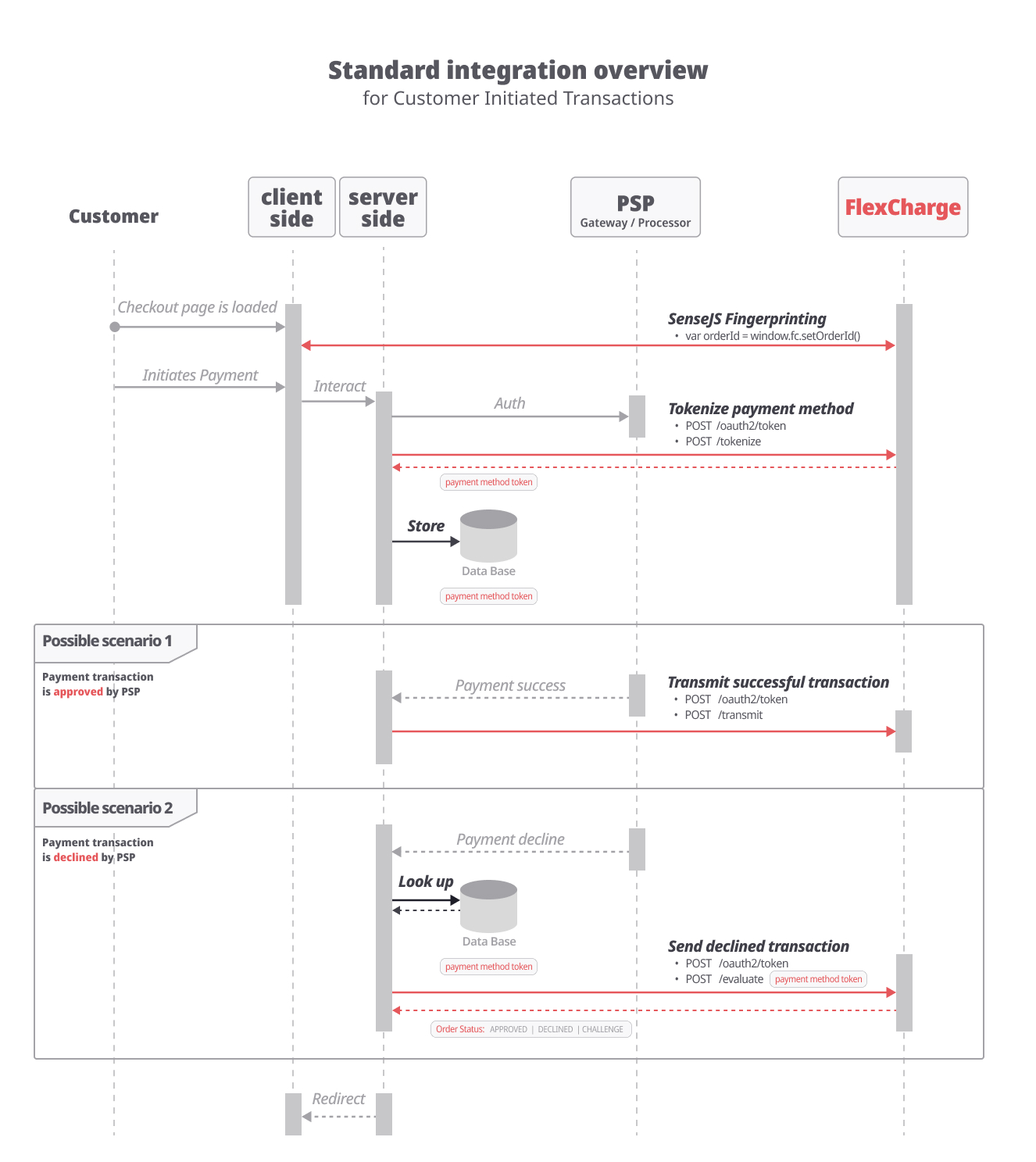Standard CIT Integration
Standard CIT integration requires simple components to add to your system.
Overview
CIT are transactions happening on a checkout page (e.g.: straight sales or initials). Standard integration requires the implementation of these overall components throughout the frontend and backend.

Integration steps
Your integration build may include all or parts of this components, depending on the characteristics of your technical ecosystem.
Unsure what steps you can/need to perform? Let's schedule a call!
If you don't already have a Sandbox account with the required credentials to start using our APIs, you can request one at [email protected]
You will find all your credentials in the developer's section
On the checkout page
1. Embed and invoke SenseJS
Flex needs to receive fingerprinting for the customer's session on the checkout page (e.g.: loading, device, timzone) and to match it with the correct order if it happens to be declined.
SenseJS is the dedicated JavaScript library for that. It needs to be invoked when the checkout page is loaded.
Implement SenseJS to a checkout page.
On the server side
2. Authentication
All API requests are made over HTTPS. Requests without authentication will fail.
How to authenticate.
3. Vault credit card info on checkout
Once the credit card information is collected for Authorization, it needs to be vaulted with Flex for later use.
Vaulting can be made in parallel to the Auth call.
Incorporate /tokenize to a checkout.
4. On authorized payments: Transmit the transaction information
Flex will build your custom risk model based on your successful transactions. POST /transmit doesn't require an answer, so this 'fire and forget' call doesn't add latency to your transaction.
Queue /transmit after an approval.
5. On declined payments: Evaluate that transaction
Retrieve the tokenized credit card information and pass it along with POST /evaluate
Flex will evaluate that transaction and respond with an APPROVED , CHALLENGE.or DECLINED status in real time. Treat CHALLENGE as a decline for standard CIT integrations. If you wish to include additional decline rescue paths, please use our Advanced CIT integration.
Call /evaluate after a decline.
6. Issue a refund on a Flex order
On an APPROVED transaction, issue a full or partial refund with POST /refund.
Retrieve the orderSessionKey from the /evaluate response to build your call.
Call /refund on an order.
Build your integration
Your integration build will depend on the characteristics of your technical ecosystem.
Unsure what steps you can/need to perform? Let's schedule a call!
Updated 12 days ago
